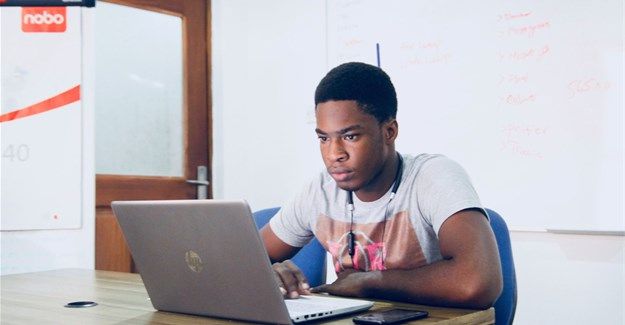The poor must not be denied online education

South Africa’s education system faces many challenges. Of course, like any other institution offering online education, there will be challenges. This is true especially for our rural areas, where basic infrastructure is often lacking and poverty and unemployment always on the rise.
The cost of data in South Africa is very expensive. While many regions have fibre accessibility, this is not so in rural areas. There exists a digital divide in our country and this is the opportunity that should be used to bridge the gap by securing capabilities and possible partnerships with data service providers to bring about affordable and accessible solutions.
Amidst the challenges faced by higher education institutions concerning the coronavirus, the opportunity to rise above this situation means that institutions who embarked with the foresight to use technology in their teaching and learning are better equipped to transition and meet their objectives. In fact, all higher education institutions must venture into sustainability and knowledge management in all their activities.
The experience at our distance learning facility when dealing with the effects of the coronavirus is a humbling one and one of admiration for many businesses and the education sector who are vested in the continuity of education and the best interests of their students.
Importance of technology
As a distance higher education institution, we at MANCOSA, for example, have transitioned into a fully online platform for learning, teaching and assessment as the online imperative has been a strategy that commenced a few years back. This move was made while continuing to focus on sound pedagogical practices to ensure that academic quality and quality educational involvements direct the quality of our students’ educational experience. We have sought to provide access to education - students can download the material and study offline.
We realised in advance that if we hope to take Africa into the future, technology is going to be an important factor. This has come to the forefront with the Learning Management Platform enabling us to deliver our programmes effectively and protecting staff and students during the pandemic.
Our IT department has been able to make the transfer to a fully online platform quite seamlessly. Work, including meetings, is being conducted using online technology. Staff also have had to make major changes to their work habits.
Our academic teams had to swiftly network and implement systems and processes with all the key role players to ensure that learning can continue via the online platform. Academic staff are working remotely as they prepare and create online learning resources for our students. Digital teaching using audio and visual means and forums have been placed on the learning management system for most of our programmes. Finding the most efficient way to integrate assessments and providing support to our students have been mobilised.
We have focused on the jobs of the future and how learning had to change to include use of technology and exposing our students to learn using technology. Employability has been a critical area of focus and we foresee skills developed through online learning being a great contributor to our agenda.
Africa lags behind and may experience difficulty to compete in the global economy in the next realm of artificial intelligence, and robotics is key to the Fourth Industrial Revolution (4IR).
Our teaching and learning are centred on the drivers and activists where Africa's skills must come to the forefront. This includes equipping our facilitators with a pedagogical skillset to teach using digital tools, hosting webinars, marking online and providing feedback to assessments via the online platform which places our students in an advantaged position.
The coronavirus has created a crisis, but it is in times of crises that we summon the courage and the determination to do things differently and better.